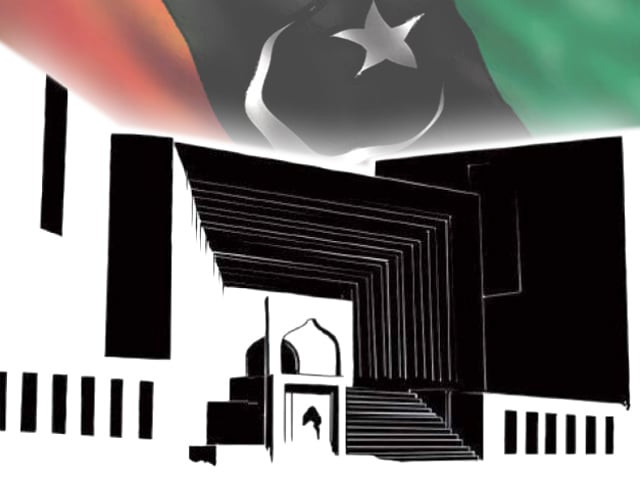Clash of institutions
The stand-off between the Supreme Court and the government could threaten our system of checks and balances.

Having been stung by Yousaf Raza Gilani’s disqualification by the Supreme Court and with his replacement, Raja Pervaiz Ashraf facing the same threat, the PPP is on course to pass a law exempting government officials from charges of contempt of court. The PPP may be using standard legislative powers to protect itself but the end result is likely to be as hurtful for the separation of powers and can lead to a further clash between institutions. Even if the Supreme Court, in the judgment of the government, had overreached by charging Mr Gilani with contempt, to pass a law based on that would be a folly. Recall that in 1997, the Nawaz Sharif government wanted to pass an almost identical law to reign in the Supreme Court, when Sajjad Ali Shah was chief justice. Sharif’s supporters then went on to raid the Supreme Court, an act that certainly qualifies as contempt and should have been severely punished. The PPP, blinded by its own narrow interests, seems not to have realised that.
The fact is that every institution needs to be kept in check by other independent government institutions. The PPP has already submitted itself to the mercy of the Supreme Court in the case of Mr Gilani. One can only hope that further confrontation between the executive and judiciary does not take place.
Published in The Express Tribune, July 6th, 2012.














COMMENTS
Comments are moderated and generally will be posted if they are on-topic and not abusive.
For more information, please see our Comments FAQ